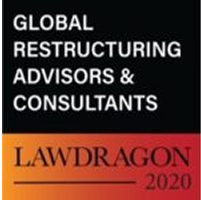Our track record speaks for itself.
For more than two decades, our expertise has helped hundreds of companies, large and small, succeed.
Our Work
Engagements include financial advisory, interim management, litigation support, asset valuation, and creating alternative channels for recovery and growth.
Latest Insights & Commentary
How Financial Statement Fraud is Committed: Five Mini Case Studies
December 8, 2025 Read more
Anne Eberhardt, CFE, CAMS
Senior Director
Valuation & Litigation Consulting
Here’s where you can find us
See upcoming eventsRecognition
Gavin/Solmonese is proud to be consistently recognized with prestigious industry awards that celebrate our commitment to excellence and innovation. These accolades reflect the trust our clients place in us and our dedication to delivering impactful results.












ABI Task Force on Veterans and Servicemembers Affairs
If you’re a veteran or know a veteran needing assistance or information regarding credit issues, contact the ABI task force for free help.
You can also donate to organizations focused on wounded troop services, military social services, and military family support.
Donate to nonprofits